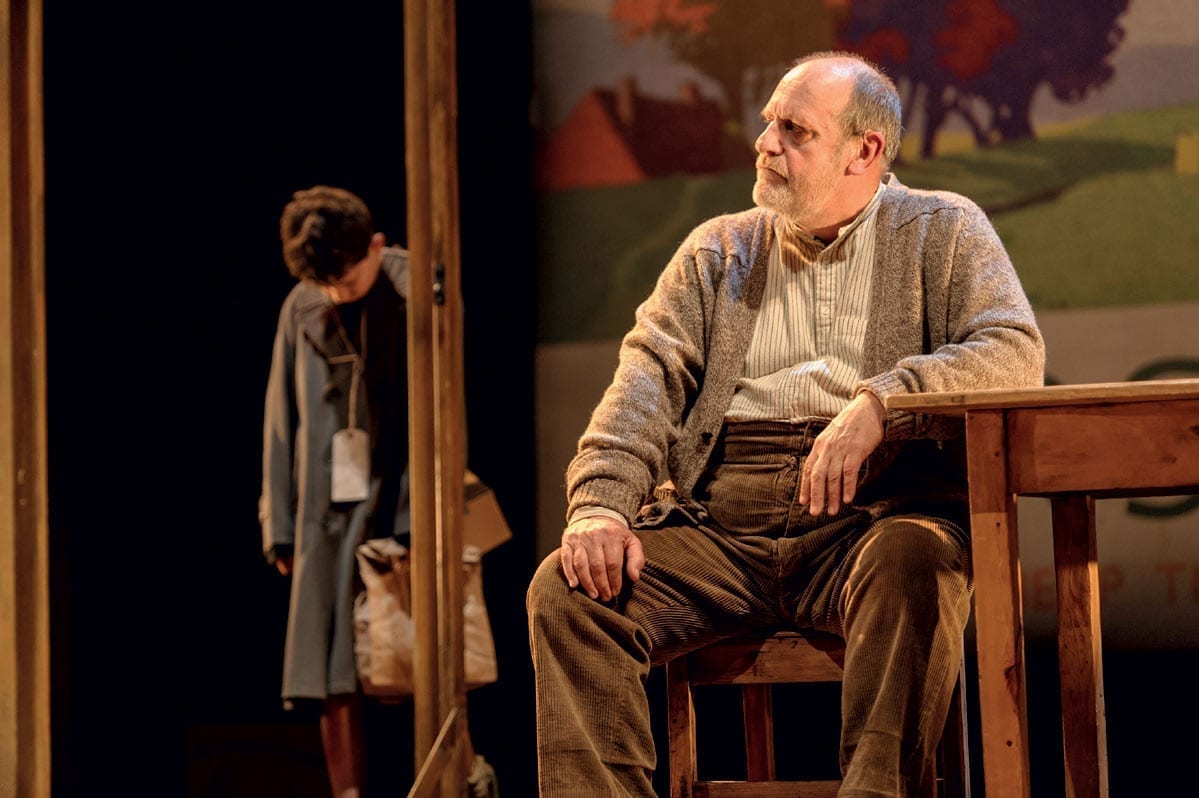The large-scale evacuation of children from London during World War Two is a topic which has been written about many times. Michelle Magorian’s 1981 novel, Goodnight Mister Tom, is one of the literary gems about the trauma suffered on home turf by children and parents alike in this time of devastating separation. David Wood’s stage adaptation of The Guardian Children’s Fiction Prize Winner is now brought to the Richmond Theatre. Both children and adults can enjoy an emotional and touching play, highlighting the challenges faced by evacuees and their hosts, as well as the unlikely bonds that formed as a result.
David Wood is very concerned about authenticity. In the programme notes, he describes the need to use child actors to convey the vulnerability of the evacuees accurately. Unfortunately, this does not always result in uniformly strong performances. Some patchy acting led to a lack of depth in some key characters. However, a shining performance from Sonny Kirby as Zach was the highlight of the production. Energy, immense stage-presence and comic talent made for enjoyable viewing, and his bubbly and lovable character made the ending all the more shocking.
A believable and intelligent portrayal of the mentally disturbed mother by Melle Stewart highlighted the contrast between her and the curmudgeonly, yet soft-hearted Tom Oakley who takes her young son, William Beech, into his home. William arrives in Dorset with just two possessions from his deprived London life: his mother’s belt (and the bruises to match) and a bible. His god-fearing mother, lives a double life, and projects all her sin onto her son, constantly telling him that he will go to hell for the tiniest of deeds. By contrast, the secluded countryman, Tom Oakley, who reluctantly takes in the evacuee, swears that he ‘has never hit a child’. He may not share Mrs Beech’s religious beliefs, but his morals are righteous.
Goodnight Mister Tom sensitively shows how Tom and William save each other. The mutualistic relationship of the unlikely pair develops throughout the production. Mr Tom, acted thoughtfully by David Troughton, emerges from the reclusive shell that he has been hiding in for forty years since the tragic death of his wife and child. William slowly recovers from the bruises that symbolise his deprived and abusive childhood in London. The multiple setbacks they encounter along the way create the drama of the play and keep the audience thoroughly concerned for the characters.
There is educational value in this play too. Students learning about World War Two on the home front will find that this play is an excellent portrayal of life for those who were often more affected by their fellow citizens than by the Germans. The taboos of English culture at the time are also exposed, albeit exaggerated, by William’s mother, whose strictly orthodox Christian values prohibit, for example, any contact with girls. The more relaxed atmosphere of the countryside positively affects William, who gradually is liberated from the restrictions he faced back in the city with his oppressive mother.
The Richmond Theatre has produced an engaging tale of war-time suffering, which, despite its tragic nature, has the power to bring people together and unite communities.

